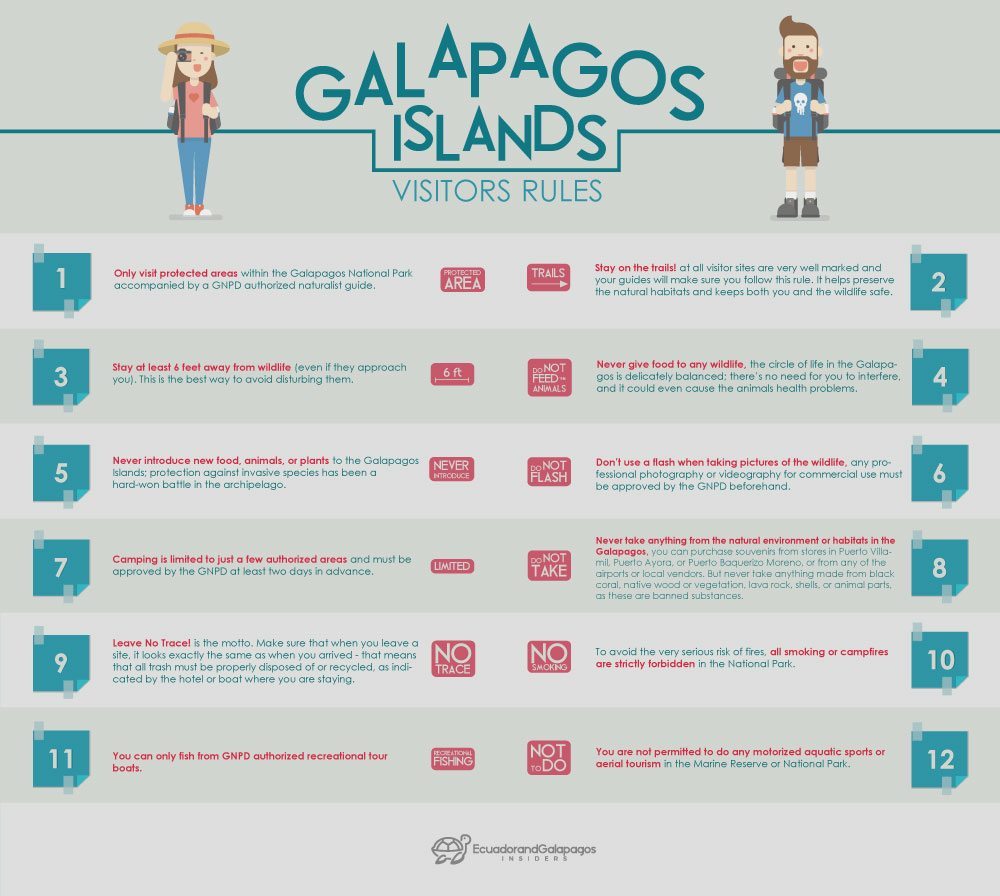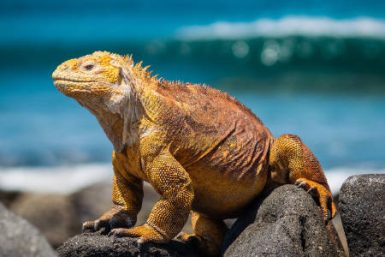- Talk with an expert insider!
- USA & Canada: 1-773-280-9571
- Ecuador: +593-987-004-404
- [email protected]
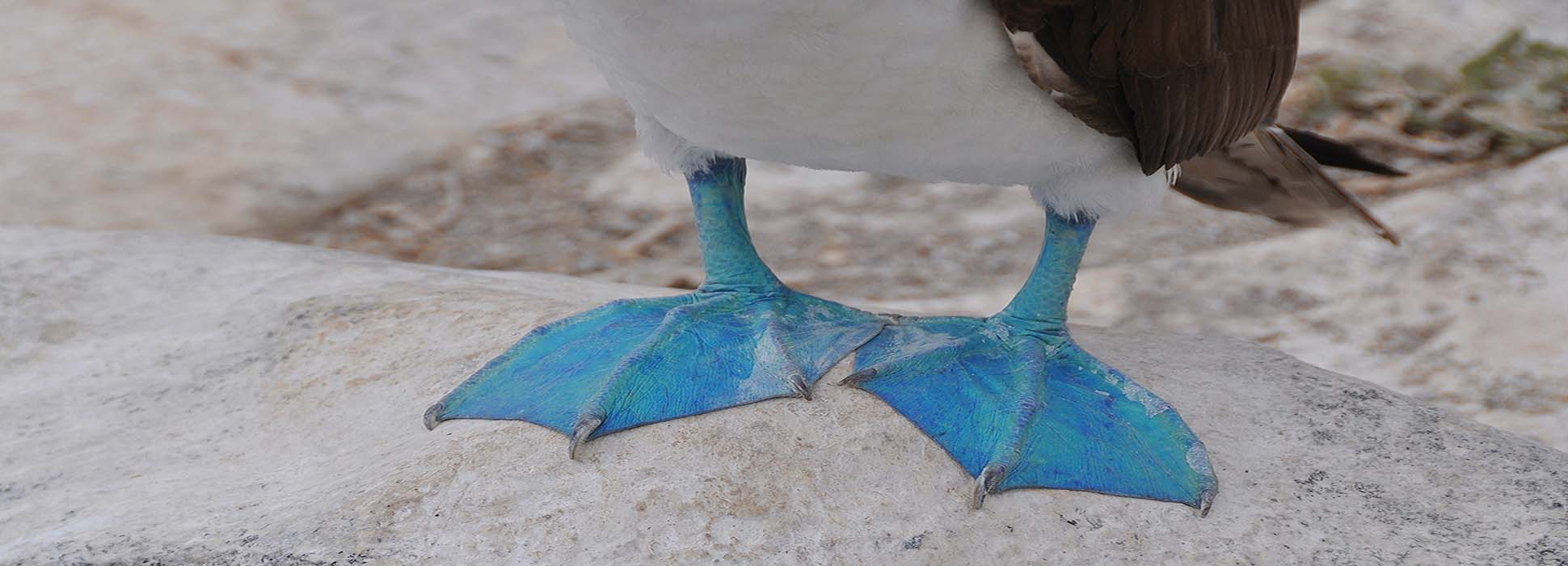
Galapagos National Park Rules

Top Ecuador National Parks
February 2, 2018
Galapagos Flights & Transportation Guide
February 14, 2018Galapagos National Park Rules for Visitors
The Galapagos Islands are one of the planet’s last remaining pristine wildlife refuges, home to rare & endangered endemic species, and the strict visitor rules that the National Park enforces are important for the conservation of these fragile natural habitats.
Since the 1960s, tourism in the Galapagos Islands has exploded, exceeding more than 220,000 annual visitors. And the number is still on the rise, with more hotels being built and boats being commissioned each year. On one hand, it’s wonderful that so many people can see the archipelago that Darwin himself visited in 1835, and much of the money from tourism helps support a robust local economy focused on the conservation of the Islands; on the other hand, controlling and regulating tourism is vital to maintaining the Galapagos Islands just as they were when Darwin visited.
Fast Fact: The Galapagos National Park regulates immigration and tourism in the entire Galapagos archipelago - although the population on the four inhabited islands has grown significantly in the past generation, very few Ecuadorians are allowed to move there. And all of the tours and cruises through the Galapagos Islands are planned far in advance according to the guidelines set out by the National Park.
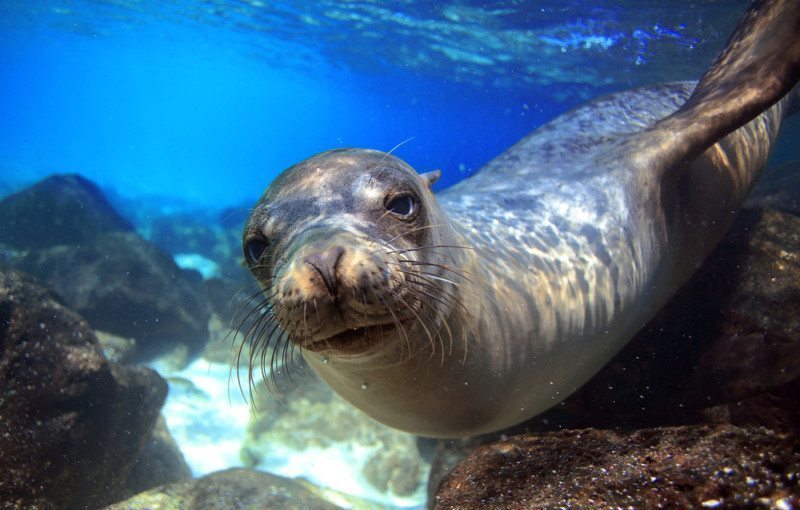
So what are these rules that the Galapagos National Park has?
Here’s a shortlist of the most important things to keep in mind while traveling to the Galapagos Islands:
- Only visit protected areas within the Galapagos National Park accompanied by a GNPD authorized naturalist guide.
- Stay on the trails! The trails at all visitor sites are very well marked and your guides will make sure you follow this rule. It helps preserve the natural habitats and keeps both you and the wildlife safe.
- Stay at least 6 feet away from wildlife (even if they approach you). This is the best way to avoid disturbing them.
- Never give food to any wildlife - the circle of life in the Galapagos is delicately balanced; there’s no need for you to interfere, and it could even cause the animals health problems.
- Never introduce new food, animals, or plants to the Galapagos Islands; protection against invasive species has been a hard-won battle in the archipelago.

“If you think adventure is dangerous, try routine, it's lethal.”
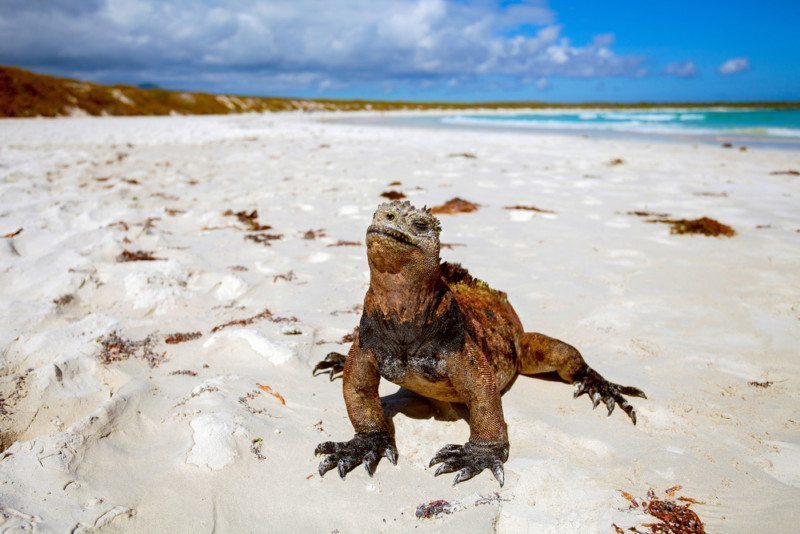
Why does it matter?
Whenever you visit any national park anywhere in the world, your goal should be to leave it exactly as it was before you came, and this is especially important when visiting the Galapagos Islands!
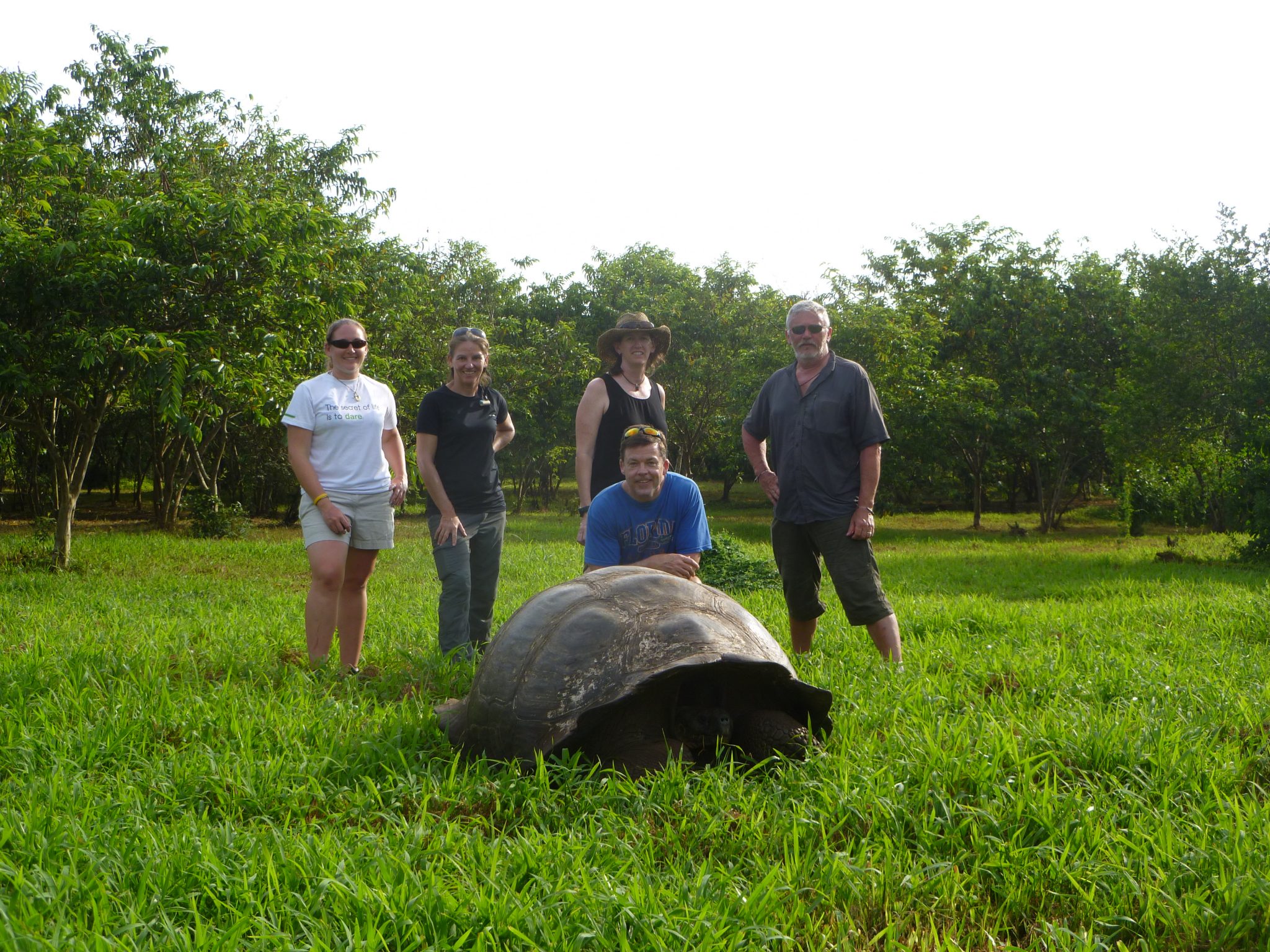
Here, you aren’t a tourist as much as a temporary part of the whole ecosystem, which is why playing your part in conserving the Islands is paramount. The rules set in place by the National Park have been carefully designed to balance travelers’ access to Galapagos species and marine wildlife in its most natural forms and the protection of these fragile marine environments.
You will witness endemic and native species the likes of which could only exist in the Galapagos Islands, and your contribution to protecting them is your responsibility when you visit. We are the stewards of the next generation, and the decisions & actions we take today will have a lasting impact on tomorrow. For more information on the Galapagos Islands or for Galapagos cruises and tours, contact our team of local experts!
Finally we leave you with this Infographic prepared by our Insider team, we hope you enjoy it and we hope to have you on one of our Galapagos Tours soon!


